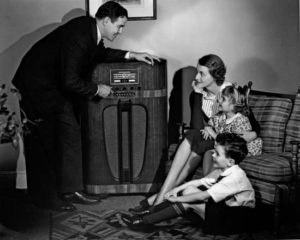by Terri Reddout
I remember listening for my favorite songs on KENE Radio in Toppenish. In fact, one of the seniors at my high school worked there as a DJ. Once, I won a contest for the best joke of the day. (I remember the joke. I have no idea how I won.)
Your generation, Millennials and Gen Z, spend about 18 hours a week listening to audio. Like me, your first choice is radio, but you also use audio sources like Spotify and Pandora, in addition to podcasts. Bottom line, in my day you I listened to radio on a radio. In your time “radio” doesn’t have to come from a radio. You can listen to audio on you iPod, your computer or your smart phone. You don’t get to hear the static as you tune a station in for the evening.
They say radio is dying. In my mind, radio is like a cat… it has nine lives. Everyone thinks it’s going to die, but then radio reinvents itself over and over and over again.
A little radio history
There was a day and time where people would actually gather around a radio set and “watch” radio. When radios first moved into our homes they were a bit clunkier. As you can see in this picture, the radio was slightly smaller than today’s big screen TVs.
Whenever your program came on, you ran into the living room, sat down in front of the radio and watched it as you listened to the drama of Little Orphan Annie, the comedy of the Jack Benny Show or the soap opera The Guiding Light.
The Golden Age of Radio
Radio was the most popular form of entertainment in the 30s and 40s. Even in the early 30s, over half the households in the U.S. had a radio in their homes.
It’s the era when soap operas were invented, when you could ride on the adventures with the Lone Ranger, or listen to the crazy comedy of Burns and Allen. One dramatic program, The Shadow, developed its own catchphrase, “The weed of crime bears bitter fruit! Crime does not pay. The Shadow knows!”
Just like in “Christmas Story” kids parked themselves in front of the radio to listen to Little Orphan Annie and decode each week’s secret message. My parents said this is one of their favorite memories as a kid (even if the secret message had a commercial bias to it.)
We interrupt this program…
People tuned to their radios to the hear about the Hindenburg air ship landing in the U.S. after making its first transatlantic flight. What they heard ended up being a catastrophe in real time. The Hindenburg Disaster on radio ended up coining an iconic phrase… “Oh, the humanity…”
What made radio so impactful is how quickly news and information could get out to the people. And, it allowed people who didn’t know how to read, access to information they wouldn’t have.
BTW- In the late 70s/early 80s, a television sitcom, WKRP in Cinncinatti parodied the Hindenburg Disaster during a Thanksgiving promotion. Watch it. It’s funny. Really funny. Dropping turkeys funny.
A calm voice, sitting no where near a fireplace
FDR broadcasted over 50 Fireside Chats through the Depression Era and into World War II. He used these chats to explain policies ranging from the New Deal to Social Security and updates on the war. He also used the radio broadcasts to stomp out rumors circulating among the American people.
In fact, experts credit the first of FDR’s Fireside Chats from stopping a banking panic in 1933 during the Depression.
The Martian Invasion
In 1938, Orson Wells another episode in his Mercury Theater series. He opened his radio broadcast by saying he based that night’s radio on H.G. Wells’ book The War of the Worlds.
Wells wrote the play to sound like news bulletins breaking into regular programming. Listeners thought they were listening to a play-by-play of a Martian invasion. Panic struck.
Orson Wells said people actually believed Martians had landed. Wells said people hid out in the mountains weeks after the broadcast.
In retrospect, the “panic” may have been a bit exaggerated. Wells little play aired opposite the extremely popular Charlie McCarthy Show and The Chase and Sanborn Hour. So, not that many people were actually listening.
There’s also a theory that newspapers played up the incident as bad broadcasting that could hurt the public. Why? They feared radio was cutting into their profits.
It’s only Rock and Roll, and I like it! (Thanks to payola!)
Radio disc jockey Alan Freed created the phrase “Rock ‘n Roll.” He played Elvis music when other stations still played Sinatra. He’s also credited with integrating his playlists; choosing to play the music originally recorded by Black artists, rather than the “cover” versions recorded by squeaky white artists, like Pat Boone.
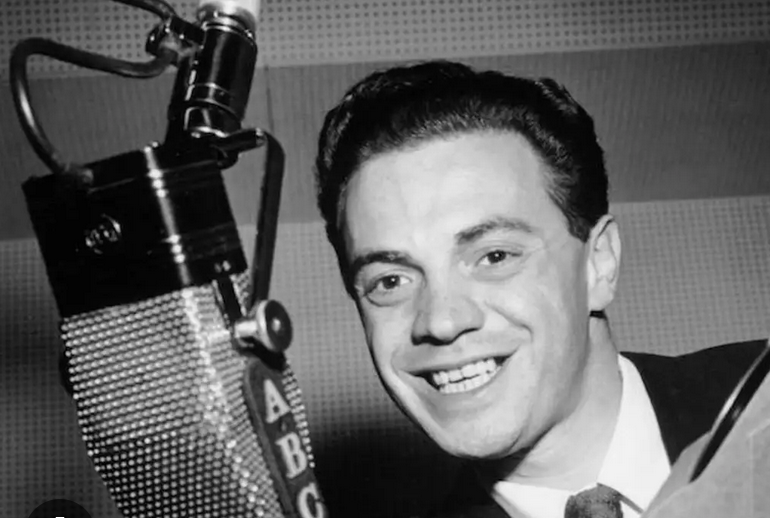
But Freed was a pioneer. Most radio stations didn’t want that “dirty rock ‘n roll music” playing on their airwaves. But without radio airtime, selling those records turned out to be a challenge.
You have to remember, this was waaayyyyy before the time of Rolling Stone, MTV, or YouTube.

This was long before music shows like American Bandstand, Hullabaloo, and Soul Train.
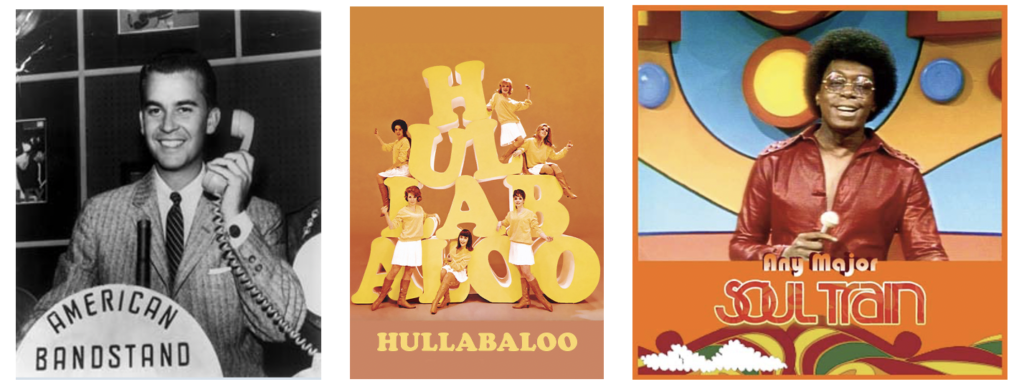
In rock ‘n roll’s infancy the only way to get your audience to hear your artists’ music and buy it happened through radio air play. So, record executives would offered DJs an “inventive” to play their artists’ records. That incentive could be money, booze, drugs or “other services.” At the time, it wasn’t illegal, but it certainly wasn’t ethical.
This 8:40 video does a much better (and quicker) job of explaining payola and paved the way for rock ‘n roll music. Watch it. Seriously, watch it.
Did the Congressional investigation stop payola? Music insiders say no! An article in Rolling Stone Magazine, August 6, 2019, talked with one major artist who remained anonymous. He said he paid $50,000 in exchange for 800 plays of his latest song on a major station.
Record executives backed up that claim in the same article.
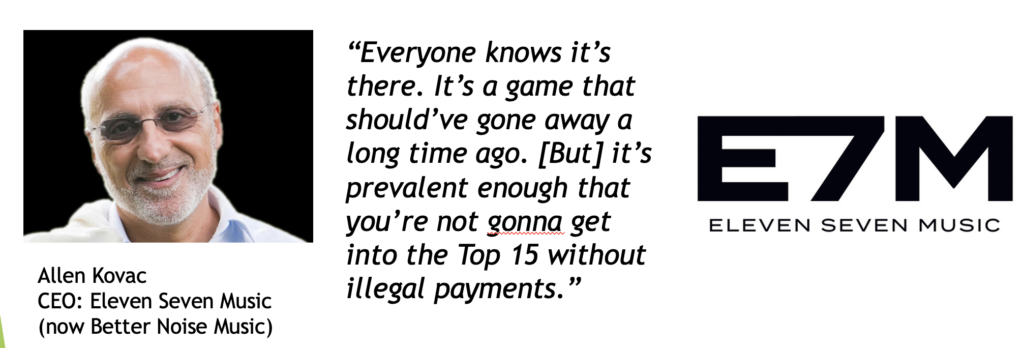
So, you have to ask yourself if your favorite song on your playlist is there because it’s a good song… or because someone paid for you to listen to it?
I want my… MTV... Pirate Radio
In the 60s, the BBC pretty much controlled the airwaves. They only programmed a couple of hours a week to rock-in-roll in favor of more dignified classical music.
Some clever rock-n-roll DJs got a ship, anchored it off the English coast and started broadcasting back to jolly old England. The British Government couldn’t do anything about it because the DJs anchored their floating radio station in international waters.
If it weren’t for Radio Caroline, we may never have heard about the Beatles, the Rolling Stones, the Who, the Kinks and many other British Invasion bands.
BTW – You might of watched a 2009 movie based on Radio Caroline. It’s called “The Boat that Rocked.”
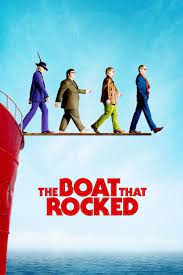
Howard Stern
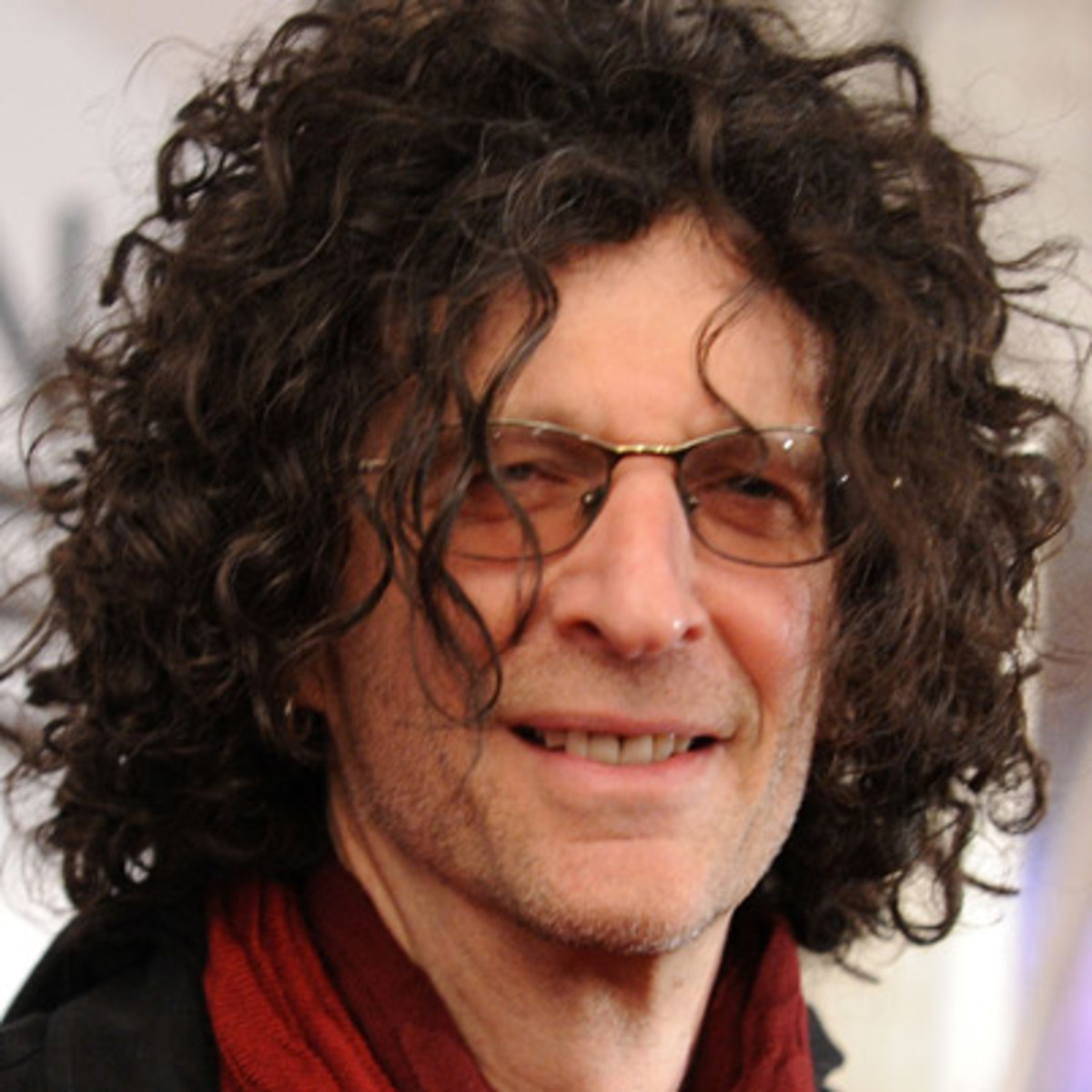
“The King of All Media” gained popularity for his anything goes radio programs. He’s also known for being the king of Federal Communications Commission fines. Between 1990 and 2004, the FCC fined stations carrying Stern’s radio show $2.5 million.
Stern isn’t the first radio DJ to be fined, but his story represents the struggle between regulating the public airwaves and Free Speech.
Howard stopped wracking up FCC fines when he moved to Sirius Radio in 2006. Sirius is satellite radio and doesn’t use the public airwaves, so the FCC has no control over Stern’s broadcasts.
The Assignment
Head on over to Canvas and look for the Blog:Radio Impact assignment.
